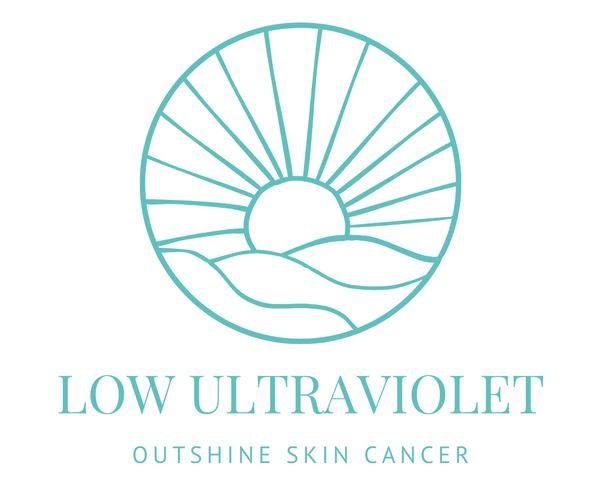By now, we’ve probably all seen the video clip of Kristin Cavallari saying she’s anti-sunscreen making its rounds on Instagram and TikTok. The Laguna Beach alum shared on an episode of her podcast, Let’s Be Honest, that she doesn’t wear sunscreen, nor does she think it’s necessary. While this might seem like a trivial matter to some, for the skin cancer and melanoma community, it raises important questions about the influence of celebrities on public health and the consequences of disregarding sun protection.

The podcast episode, originally released in January, has since gone viral due to Cavallari’s anti-sunscreen commentary and the concerning responses from her guest, Eastern medicine practitioner Ryan Monahan. According to his company website, Peaceful Mountain Medicine, he has both his Masters and Doctoral degrees of Eastern Medicine and completed Functional Medicine training.
However, this training clearly didn’t impart the real and dangerous concerns of unprotected and repetitive sun exposure. He made several concerning claims, especially for the cancer community. One of those claims is that individuals who take a lot of antioxidant supplements and “work up a base coat” in the sun can slowly begin to tolerate the sun instead of burning. According to the Skin Cancer Foundation, there is no such thing as a solar callus or so-called “base tan.” Additional concerning claims from Monahan include that taking the antioxidant astaxanthin alone is enough to keep you safe for a full day out in the sun.
Finally, Cavallari followed up by sharing a common myth that you can use coconut oil as a sunscreen. We’re here to completely debunk that claim. Coconut oil is not a replacement for sunscreen and does not offer enough protection to prevent sunburns and other long-lasting skin damage like skin cancer. The Mayo Clinic recommends steering clear of all “so-called sunscreens, such as cocoa butter, safflower, olive, jojoba, baby or coconut oil that provide no sun protection.”
So, what does this mean for the cancer community?
Kristin Cavallari’s podcast episode is extremely damaging to the cancer community. With such a large platform, her actions and statements carry weight and can potentially influence millions of people, especially with Gen Z and younger Millennial audiences. In addition to broadcasting harmful misinformation, her platform and reach are so great that years of education from skin cancer organizations like the Melanoma Research Alliance and the Skin Cancer Foundation take a hit.
Skin cancer is the most common cancer worldwide, with millions of cases diagnosed each year. Exposure to ultraviolet (UV) radiation from the sun is the primary risk factor for developing skin cancer. Sunscreen is a crucial tool in protecting the skin from harmful UV rays, yet many people still underestimate its importance or overlook its use in their daily routines.
For the cancer community, Kristin Cavallari's admission is concerning for several reasons. Firstly, it perpetuates the misconception that skipping sunscreen is not a significant health risk. By downplaying the importance of sun protection, she may influence others to follow suit, putting themselves at risk of developing skin cancer.
Secondly, celebrities like Cavallari often set trends and shape beauty standards. If she continues to promote a sun-kissed, tanned look without emphasizing the importance of sunscreen, it could reinforce the harmful idea that a bronzed complexion is more desirable than healthy skin. This mentality can have serious consequences, especially among younger generations who are more susceptible to peer influence.
While criticizing Cavallari's stance on sunscreen, it's crucial to acknowledge that this moment can serve as an opportunity for education and awareness. By highlighting the importance of sun protection and debunking common myths about sunscreen, we can empower individuals to make informed decisions about their skin health. Moreover, we can encourage celebrities and influencers to use their platforms responsibly by promoting healthy behaviors and advocating for public health initiatives.
Know the Facts
- The American Academy of Dermatology (AAD) recommends that everyone use a daily sunscreen that meets the following criteria: Broad-spectrum protection (protects against UVA and UVB rays), SPF 30 or higher, and water resistance.
- According to the Skin Cancer Foundation, there is no such thing as a solar callus or so-called “base tan.” There is no such thing as a healthy tan, and you cannot build up a tolerance for sun safety.
- 1 in 5 Americans will develop skin cancer by the age of 70.
- Indoor tanning is NOT safer than tanning outdoors. In fact, the AAD notes that “using tanning beds before age 20 can increase your chances of developing melanoma by 47%, and the risk increases with each use.”
- The Mayo Clinic advises steering clear of all “so-called sunscreens, such as cocoa butter, safflower, olive, jojoba, baby or coconut oil that provide no sun protection.”
If you want to learn more about sun safety, skin cancer prevention, and melanoma advocacy, tune in to the Ultraviolet Tide podcast. New episodes go live every Tuesday.

